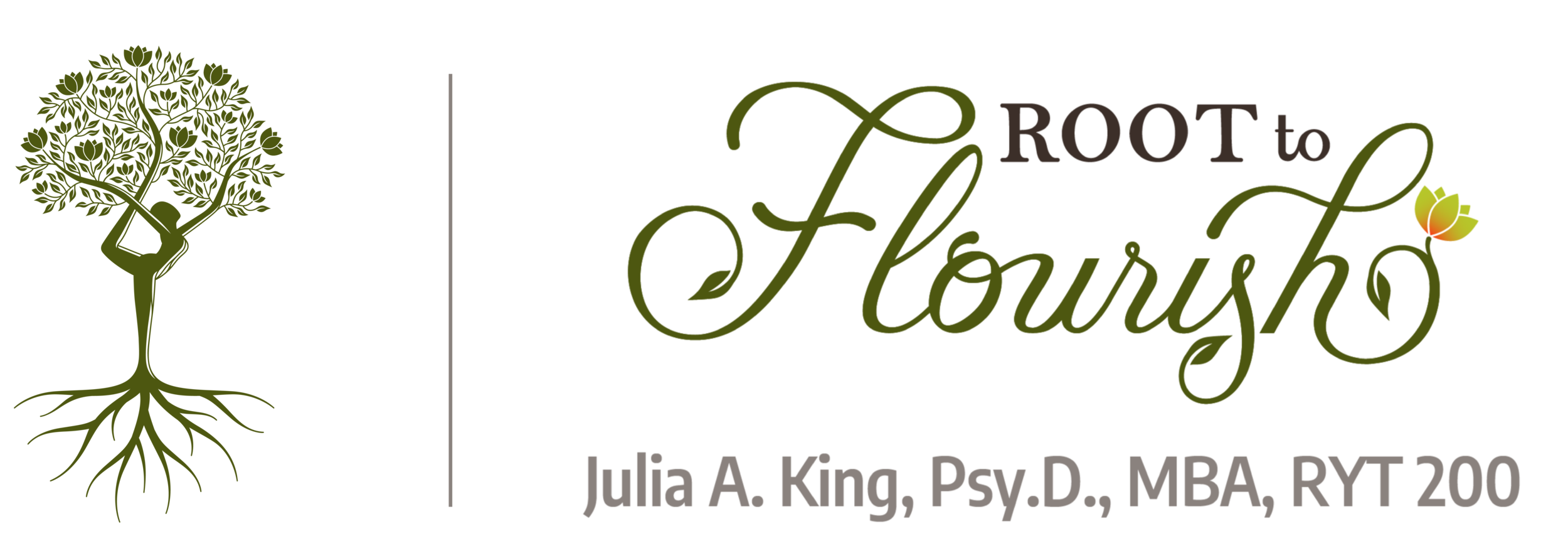A surprising take on sleep meditation: 99 bottles of beer on the wall. Yes, really…
Read MoreA recent study suggests that your current blood sugar and cholesterol levels may predict your future risk of stress, anxiety, and depression.
Read MoreTo change your life, you must change how you respond to the thoughts you’re currently experencing.
Read MoreNegative thoughts help to create negative emotion. Explore three strategies to shift negative thinking to improve your emotional wellbeing.
Read MoreWe can use our breath and body to calm our nervous system, to communicate directly with our brain.
Read MoreThe #1 reason I recommend my clients meditate … and it’s probably not what you think.
Read More‘Root to Flourish READS’ recommends ‘The Book of Joy: Lasting Happiness in a Changing World’ by His Holiness The Dalai Lama and Archbishop Desmond Tutu. This book chronicles a week-long conversation with these two spiritual leaders, allowing their own wisdom to provide an answer to the question: How do we find joy in the face of inevitable suffering?
Read MoreTaking inspiration from Professor Dumbledore, we reflect on where we can find happiness, from within.
Read More‘Root to Flourish READS’ recommends ‘Big Magic: Creative Living Beyond Fear’ by Elizabeth Gilbert. This book is filled with wonder and joy, and encourages the reader to allow curiosity and lead the way in living a meaningful, creative life.
Read MoreWhen you attempt to decide, or plan for, or figure out, or control a situation when you really are unable to do any of those things, you’re attempting to create a safe, predictable space for yourself where you know what will happen next.
But … that’s not actually possible. You can’t actually do that …
When, instead, you 'Allow', you voluntarily choose to loosen your grip on the reins, to let go of the fallacy that simply because you make decisions and plan and predict, that things will go consistently with that vision. And, when you set down your attempts to figure out and control, you get the gift of approaching your life with curiosity and excitement instead of fear.
Read MorePerfectionism is not about healthy goal setting, goal achievement, and personal growth. There is an ugly underbelly to perfectionism. We use it as a force field to protect ourselves against the disapproval, criticism, and judgment of others, and internal feelings of disappointment and worthlessness. And it exacts a significant cost to us.
Read MoreTaking inspiration from Mr. Ping’s Secret Ingredient Soup, from Kung Fu Panda, we explore the notion that it is only when you accept yourself – when you stop the search for the non-existent secret ingredient – that you can truly thrive and see how special you are.
Read MoreAutumn anxiety is a real thing! Neurochemical, biological, and psychological factors all contribute to an increase in anxiety symptoms and low mood in the fall. But, we can thrive and live fully in the fall with increased awareness and intentional practices.
Read MoreLike anxiety, the Howler ramps up it’s response to being avoided, escalating to explosions, curses, and insults!
Read MoreAnxiety thrives in the paradox, in the irony. The harder we try to get rid of it, the more anxious we feel. It can become a self-fulfilling prophecy, turning our intentions against us, and creating the very thing we are trying to prevent. And, it sneakily makes us believe that we’re in control and that certainty is attainable.
Read MoreAnxiety - like the boggarts of the wizarding world of Harry Potter - shifts its shape to the thing each person fears the very most. Your anxieties are drawn from your individual insecurities and the earlier experiences in your life that build their foundation.
Read MoreGratitude is not fluff, nor is it toxic positivity. The goal of grateful living is not to pretend that everything’s fine, or to live in a fantasy world populated by puppies and rainbows and unicorns… In fact, gratitude is most especially important at the worst times of our lives.
Read MoreParadoxically, the intuitive attempt to keep yourself safe and comfortable, the effort to avoid anxiety, only serves to increase the anxiety. Although the immediate act of avoidance may result in a moment of relief, it only serves to exacerbate (make worse) and perpetuate (allow it to continue) your experience of anxiety.
Read More


















